
Kristal Barrywood
Kristal is a PhD student specializing in Sociocultural Anthropology. Her research in Paganism began at the University of Chicago where she became an expert on environmentalism within pagan rituals through her Master's thesis. At the University of Alberta, her dissertation research focuses on the emergence of Western Paganism in Japan. Kristal is one of only a handful of academics in North America studying Paganism.

Brianne Bertram
Brianne Bertram (MA Student): Brianne’s research focuses on the changing roles of gender and sex in biological anthropology. She is working under Dr. Sandra Garvie-Lok to look at the current methods of sex estimation in biological anthropology to see how these can be applied in forensic anthropology with new and emerging queer identities. She hopes to establish a base point in current methods and research to see how we can advance to fit a wider array of gender expression, legal gender identity, and hormonal transitioning. Her goal is to help LGBTQIA2S+ individuals, who are too often the victims of violent crimes, be identified by forensic anthropologists, no matter their gender expression or biological sex.
Twitter: @brianne_bertram
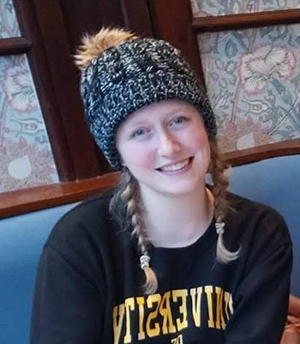
Megan Bieraugle
Megan Bieraugle is a PhD candidate in the department of Anthropology at the University of Alberta, exploring the relationship between Indigenous People and dogs on the Canadian Plains during the mid to late Holocene. Megan specializes in zooarchaeological assemblage analysis and biometry, having completed her MSc in Environmental Archaeology and Palaeoeconomy at the University of Sheffield. Beyond school, Megan enjoys teaching, coaching volleyball, and spending time with a good book.
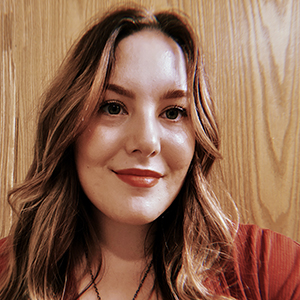
Faith Boser
Faith obtained her BA (honours) degree in archaeology from the University of Saskatchewan in the spring of 2021. She is currently a second-year master's student studying under the supervision of Dr. Robert Losey. For her thesis, she is working with collections from Lake Midden, a site located in southern Saskatchewan, dating to the Pericolonial period. Her project is focused on analyzing faunal remains from the site. Faith’s research interests include zooarchaeology, Great Plains archaeology, the archaeology of food, human and animal relationships, and mortuary archaeology.
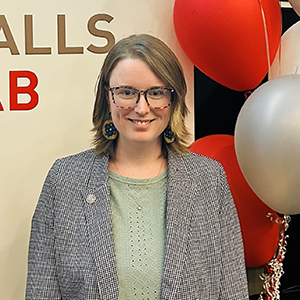
Allyson Brinston
Allyson Brinston is a passionate linguistic anthropologist specializing in Indigenous language revitalization. She is currently honing her skills and expanding her knowledge as a graduate student at the University of Alberta's Department of Anthropology, where she is researching the use of virtual reality in Indigenous language revitalization. Allyson's commitment to language and cultural preservation is evident in her work, which significantly focuses on urban spaces and fostering wellness within Indigenous communities. Before starting her graduate studies, Allyson laid a solid foundation in anthropology, completing a Bachelor of Arts honours degree at MacEwan University. Allyson is strongly dedicated to community engagement, and education has marked her journey in academia and the field with collaborations with multiple post-secondary institutions and the Canadian Commission of Unesco in 2023. She has previously worked in fundraising for Indigenous Initiatives with the University of Alberta Faculty of Engineering and worked with the Canadian Indigenous Language and Literacy Development Institute (CILLDI), where she served as a research and teacher assistant. In addition to her academic pursuits, Allyson has showcased her versatility and creativity through her work as a learning resource creator and a digital marketing copywriter. Her unique ability to merge her anthropological expertise with digital marketing has allowed her to effectively communicate and advocate for Indigenous language revitalization, reaching wider audiences and making a tangible impact. Allyson's innovative approach, extensive background, and dedication to this work are poised to contribute to the strong efforts being undertaken by SILR to support Indigenous Language Revitalization.

Margaret (Maggie) DeCoste
Margaret (Maggie) DeCoste is a first-year MA student in Sociocultural Anthropology studying under Dr. Helen Vallianatos. She received her undergraduate degree, an Honours Double Major in English and Anthropology, from the University of Western Ontario in 2022. Her research focus is the Anthropology of food, specifically traditions of recipe sharing, verbally and through the written word. For her thesis, she intends to study the influence of Ukrainian culture on the foodways of Saskatchewan, her home province, by looking at community cookbooks, compilations of recipes provided from local individuals and published by community organizations for fundraising purposes. Currently, she is also the co-coordinator, with Lyndsay Dagg, of the informal graduate student speaker series Fringe Friday, hosted roughly twice a month by AGAS.
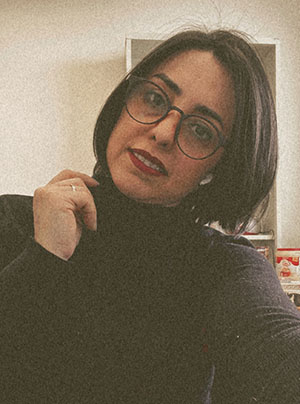
Hajar Ghorbani
I'm a Ph.D. student in sociocultural anthropology at the University of Alberta, honored as a Killam Scholar. My focus is on death studies in Iran, exploring themes like space, art, rituals, and material culture.
For six years, I conducted fieldwork in Iran, studying into the modernization and politicization of death. I co-edited "Social Studies of Death in Iran," a groundbreaking volume involving experts from various fields. As Iran's ambassador to the Association for the Study of Death and Society, I try to globalize discussions on death in Iranian contexts. I've presented keynote speeches, including at the University of Bath, UK. Beyond academia, I'm skilled in wood carving, pastel painting, and graphic design. I've also created art pieces honoring influential Iranian women, exhibited at the Isfahan University of Art.
Currently, I'm researching the agency of dead bodies, challenging traditional views by emphasizing their inherent power and voice. This perspective sheds light on Iran's societal dynamics, contributing fresh insights to anthropology and the issue of unmarked graves in Canada.
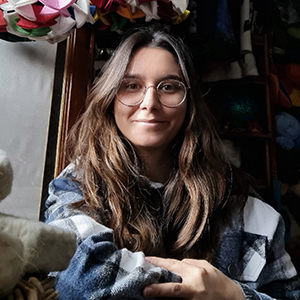
Hande Gür
Hande Gür (she/her) is a PhD candidate at the Department of Anthropology with a specialization in the anthropology of religion, spirituality, gender, and religious and social movements. Her doctoral research is an ethnographic study of the rise of Sufi—or mystical Islamic— practices among mainly young, middle-class women of Turkish origin living both in Türkiye and in the West. Gür brings to this research a solid record of academic research and publishing. She published her first solo article on this research in the Journal of Empirical Theology in 2020 and co-wrote a Turkish book based on a nation wide research, entitled “Spiritual Seeking in Türkiye” (Türkiye’de Spiritüel Arayışlar) in 2021.https://www.researchgate.net/profile/Hande-Guer-3
https://ualberta.academia.edu/Handeg%C3%BCr
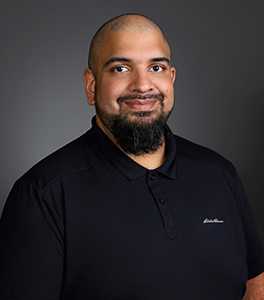
Uthman Khan
Uthman is a PhD student at the University of Alberta, specializing in Sociocultural Anthropology. His academic journey commenced with an ʻĀlimiyyah degree from Madrasah Taleemul Islam in the UK, focusing on Arabic and Islamic Sciences. Further advancing his education, Uthman earned a Master of Arts from Hartford International University, concentrating on Muslim and Christian Relations.
Engaged in doctoral studies, Uthman delves into the realm of Digital Ethnography, investigating the nuanced experiences of individuals transitioning away from conservative Islam. His research focuses on elucidating how these individuals navigate the search for meaning and acceptance in their lives. Uthman's work is a pivotal contribution to the wider comprehension of religious transitions, disrupting monolithic identities, and advocating for greater inclusivity within religious communities.
Outside academia, Uthman is a public speaker reflecting on his transformative journey, of losing his old self and embracing new possibilities. As a husband and father, Uthman combines his academic expertise with his personal story to inspire audiences to break free from limitations and create their own remarkable journeys. His public speech, “Get to Know your Puppeteers and Saboteurs,” focuses on helping those struggling to find direction and harness their uniqueness so that they can let go of saboteurs, understand their true identity, and unlock their potential.
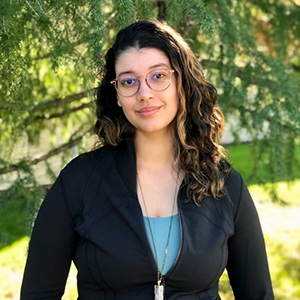
Serafina King
Serafina is a second-year master's student in religious anthropology working under the supervision of Dr. Joseph Hill.
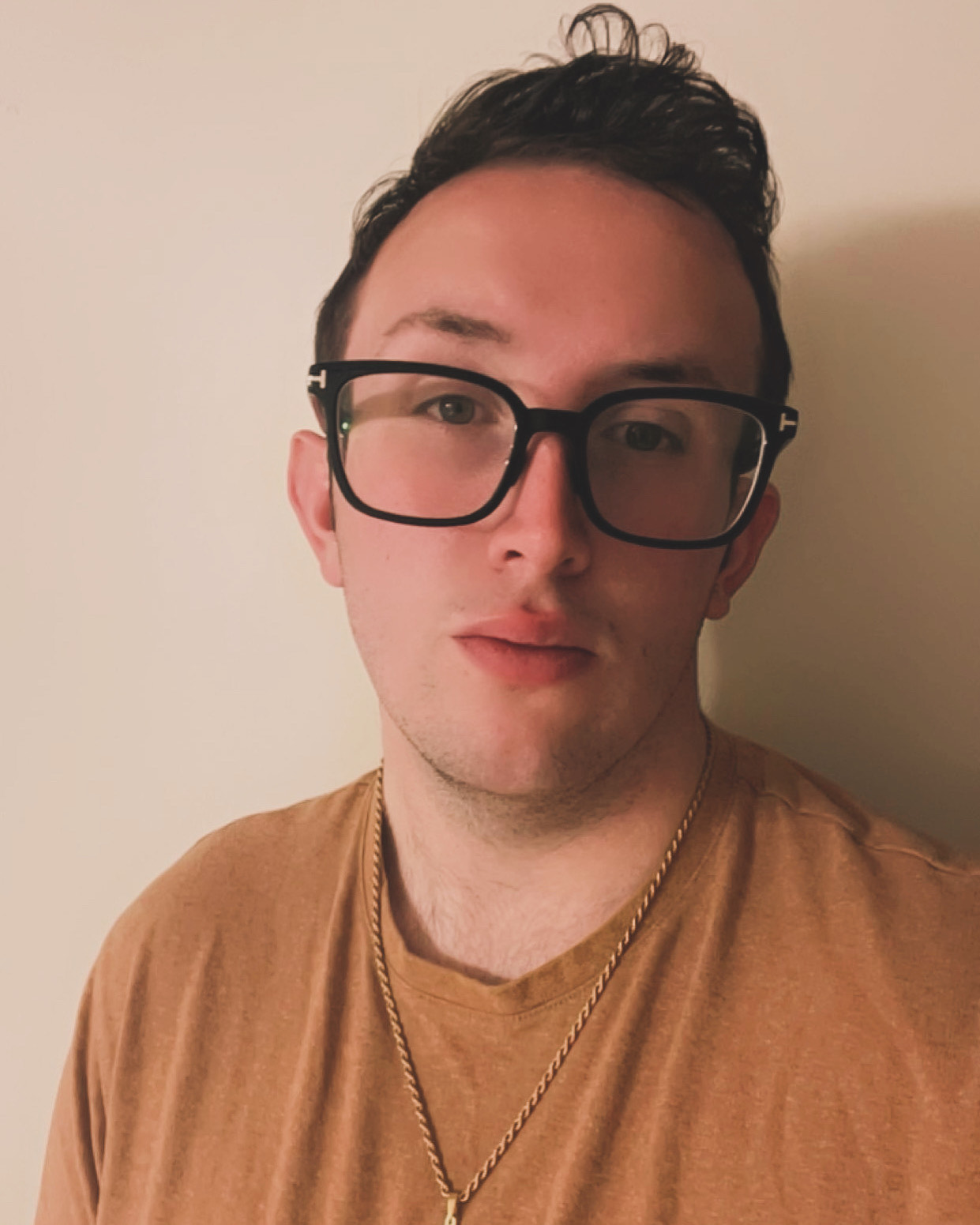
Benjamin Kucher
Benjamin Kucher is a Masters student in the Department of Anthropology with research interests in Indigenous Archaeology, Métis cultural practices, and trade networks. His current research focuses on analyzing trade beads to explore the significance of material culture in defining and understanding Métis identity. Benjamin is dedicated to integrating social justice and community-based approaches within archaeological practices to support Indigenous sovereignty and cultural preservation. In addition to his research he serves at the Graduate Students' Association Vice President Student Life and Co-President of the Indigenous Graduate Students' Association.
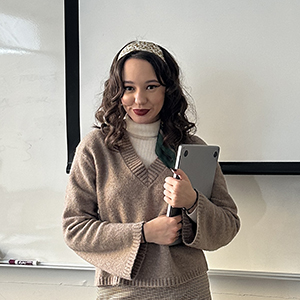
Oleksandra Kushnir
Oleksandra Kushnir is a Master's student in Sociocultural Anthropology working under the supervision of Marko Zivkovic. She completed her BA in International Relations and European Studies at Coventry (UK) and Lazarski (Poland) Universities with honours. She obtained her MA degree with distinction in Culture, Media and Society from the Polish Academy of Science and Lancaster University (joint degree). Her academic interest resides in exploring political, historical and social processes in Central and Eastern Europe, specifically in Russia and Ukraine. Currently, in her MA research, Oleksandra applies the lens of sociocultural anthropology and cultural psychology to examine historical “Great Patriotic War” narratives in the Kremlin-originated propaganda, providing it with a broader cultural and social context.
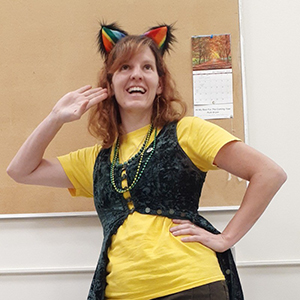
Jennifer Laughton
Jennifer (she/elle/она) is a PhD student specializing in biological anthropology. She is a member of the Baikal Archaeology Project (BAP) and is supervised by Dr. A. Weber. Her research focuses on the dental anthropology and odontometrics of Neolithic and Bronze Age hunter-gatherers of the Cis-Baikal region of Siberia, Russia.
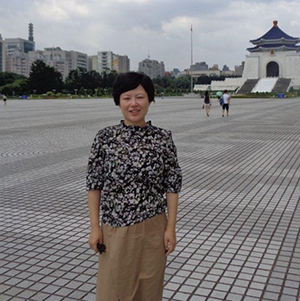
Junhong Ma
Driven by a fascination with the contrasts between Taiwan and Mainland China's tea cultures, I joined the University of Alberta’s Anthropology Department. My collaborative research with Dr. Jean DeBernardi on the "Material Identity: The Anthropology of Chinese Tea Culture" project from 2015 to 2017 offered an extensive exploration of the tea industry. This included interviews with tea business owners and educators across Taiwan and China and visits to a wide array of tea-related sites, from farms and museums to factories and company headquarters, mainly in Fujian and Zhejiang Provinces.
In my research,I examined the symbolic values of tea in relation to globalization, modernization, nationalism, identity formation, and particularly gender representation. Central to my dissertation was the analysis of major tea companies like Ten Ren’s Tea (天仁) in Taiwan and TenFu’s Tea (天福) in Mainland China, exploring their roles as cultural ambassadors.This project primarily focused on the cultural peak of tea, scrutinizing knowledge transfer, technological advancements, communication, and the intricate dynamics between Taiwan and China.
Furthering this study, I investigated the vocational training systems for professional tea masters (茶艺师) in Mainland China influenced by Taiwan and the interplay of traditional aesthetics and business interests in the tea industry. My fieldwork included following graduates of vocational school in urban centers and tea villages, studying local Mainland tea brands, small-scale tea farmers, and the local tea business landscape. This comprehensive approach aimed to provide a understanding of the evolving tea culture in those region.

Solene Mallet Gauthier
Solène studies overwintering Métis identity using plant and insect remains found at Chimney Coulee, located in SW Saskatchewan. Her research interests include foodways, identity, colonial contexts, historical archaeology, and environmental archaeology.

Sarah Mann
Sarah Mann (she/her) is a Francophone first year graduate student. She completed her Bachelors in Anthropology from the University of Alberta in 2023. Her research interests include Michif, language inclusion in archaeology, and Métis history. She is also a proud plant mom.
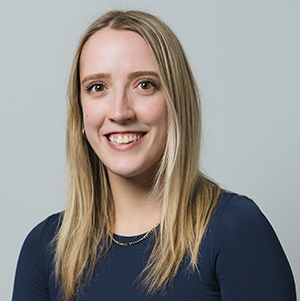
Emmy Marks
Emmy Marks is a Master’s student in her second year in cultural anthropology. Her thesis project will include ethnographic research into unhoused communities to learn more about their unique experiences and challenges so that readers can understand the application of degrowth-centred debates as they relate to the global issue of homelessness. Her work will focus on the voices of marginalized women with a special sub-focus on LGBTQ+ voices. She is working alongside Dr. Joseph Hill who serves as her supervisor.

Maria Nelson
My name is Maria Nelson. I am a Master's student working under the supervisor of Dr. Kisha Supernant. My research has brought me under her Exploring Métis Identity Through Archaeology project, with my focuses being on Métis identity as it intersects with Kinscapes, Deathscapes, and Mortuary Archaeology.
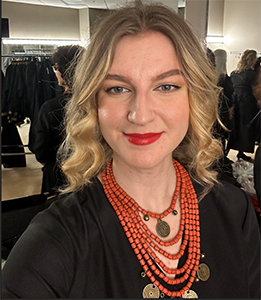
Viktoriya Popovych
Viktoriya Popovych (she/her) is a Master's student in Sociocultural Anthropology and her supervisor is Marko Zivkovic. Currently, her research looks at how linguistic ideologies position Ukrainians against each other and how they identify themselves and each other through language use in the Ukrainian diaspora of Alberta. Her research intersects with linguistic and political anthropology with an interest in national identity.

Zhiyan Ren
I'm working on the family food practices in present China, especially those conducted by women and influenced by social media.
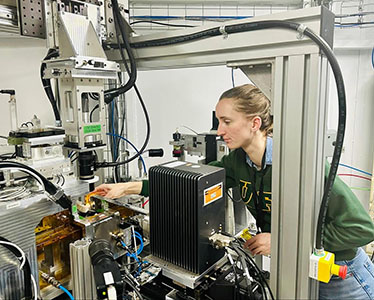
Rachel Simpson
Rachel began her PhD in 2020 under the supervision of Dr. Sandra Garvie-Lok, exploring lead exposure in late Roman to early Byzantine Corinth and Stymphalos, Greece. Her research uses synchrotron radiation microbeam techniques to examine lead uptake on a microstructural level in archaeological teeth and bones from these populations. These high resolution microstructural "maps" provide insights into patterns of lead exposure across individuals' lifetimes, as well as a means of identifying lead contamination of skeletal remains in the burial environment.

Sadie Tremblay
Sadie (she/her) completed her BSc in forensic anthropology at the University of Dundee with first-class honours. She is a current MA student in biological anthropology under the supervision of Dr. Lesley Harrington and FSO Tonya Simpson. Her current research uses medical imaging techniques to collect facial soft tissue thickness values in living Indigenous populations to improve the accuracy and precision of forensic facial reconstructions. Through this research, she aims to give investigators a new set of tools to aid in the identification of MMIWG2S.
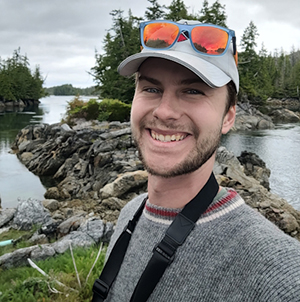
William Wadsworth
“Liam” is a Ph.D. Candidate and Killam Laureate in the Department of Anthropology/ Institute of Prairie and Indigenous Archaeology at the University of Alberta. He specializes in the application of geophysics/remote sensing techniques to Canadian archaeology and has extensive archaeological experience having worked on diverse sites representing different time periods and cultures. Partnered with Cold Lake First Nations and Chipewyan Prairie First Nation, his doctoral research focuses on historical archaeologies of eviction/removal within and around the Cold Lake Air Weapons Range. A central theme of his research has been to address objectives that are defined and driven by Indigenous communities, particularly exemplified by his involvement in the work to locate missing children around former residential schools. In this capacity, he has acted as a technical lead for many residential school ground searches and as an expert consultant for First Nations, industry, university, and government organizations. His supervisor is Dr. Kisha Supernant.
Story map/personal website: https://arcg.is/1HSDSa0.
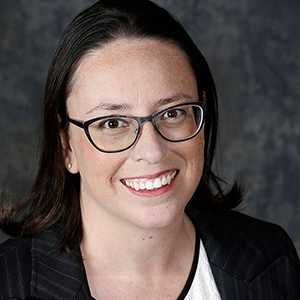
Dawn Wambold
Born and raised between the Bow and Clearwater Rivers, and within sight of the Rocky Mountains, Dawn continues to live in the same lands that her Métis and Cree family were connected to. As a scholar at the Institute of Prairie and Indigenous Archaeology, she aims to tell the stories of her ancestors’ connections to Southern Alberta using archaeology. She is married to Robert and together they have a daughter named Cassidy who is an undergraduate student in the anthropology department.